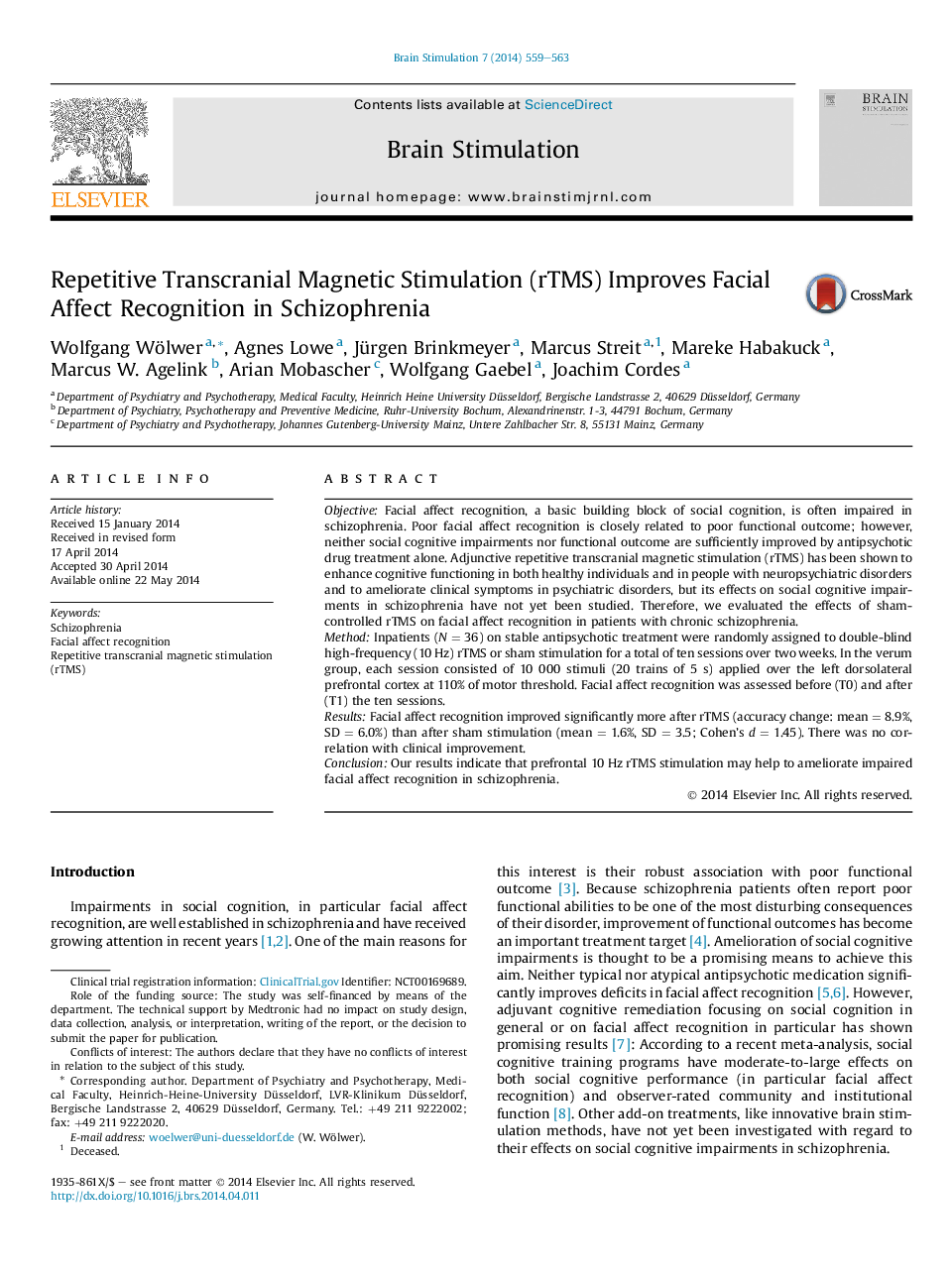| Article ID | Journal | Published Year | Pages | File Type |
|---|---|---|---|---|
| 6005552 | Brain Stimulation | 2014 | 5 Pages |
ObjectiveFacial affect recognition, a basic building block of social cognition, is often impaired in schizophrenia. Poor facial affect recognition is closely related to poor functional outcome; however, neither social cognitive impairments nor functional outcome are sufficiently improved by antipsychotic drug treatment alone. Adjunctive repetitive transcranial magnetic stimulation (rTMS) has been shown to enhance cognitive functioning in both healthy individuals and in people with neuropsychiatric disorders and to ameliorate clinical symptoms in psychiatric disorders, but its effects on social cognitive impairments in schizophrenia have not yet been studied. Therefore, we evaluated the effects of sham-controlled rTMS on facial affect recognition in patients with chronic schizophrenia.MethodInpatients (N = 36) on stable antipsychotic treatment were randomly assigned to double-blind high-frequency (10 Hz) rTMS or sham stimulation for a total of ten sessions over two weeks. In the verum group, each session consisted of 10 000 stimuli (20 trains of 5 s) applied over the left dorsolateral prefrontal cortex at 110% of motor threshold. Facial affect recognition was assessed before (T0) and after (T1) the ten sessions.ResultsFacial affect recognition improved significantly more after rTMS (accuracy change: mean = 8.9%, SD = 6.0%) than after sham stimulation (mean = 1.6%, SD = 3.5; Cohen's d = 1.45). There was no correlation with clinical improvement.ConclusionOur results indicate that prefrontal 10 Hz rTMS stimulation may help to ameliorate impaired facial affect recognition in schizophrenia.
